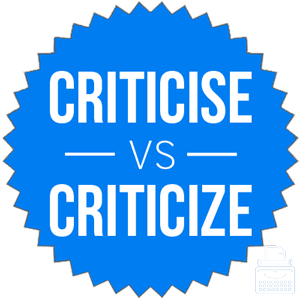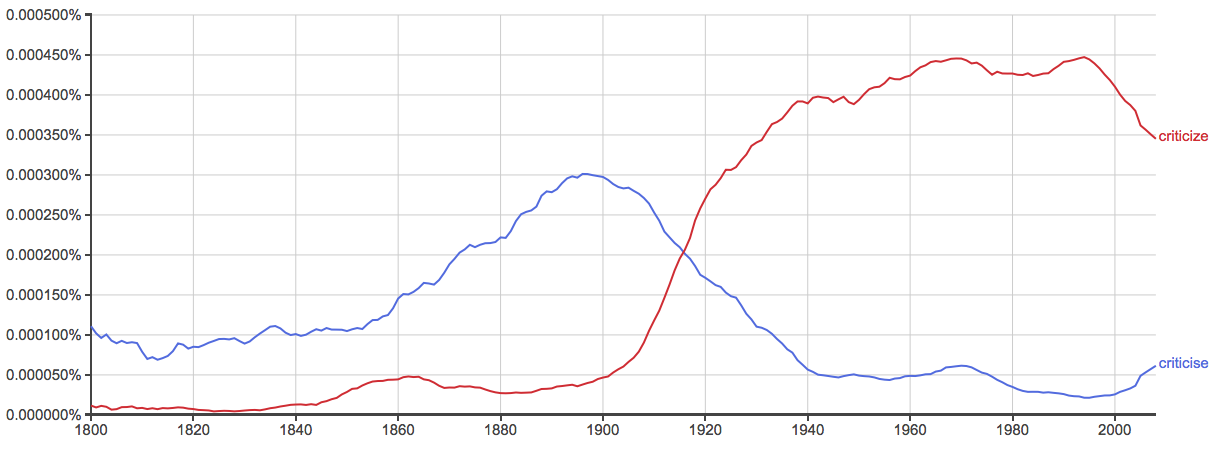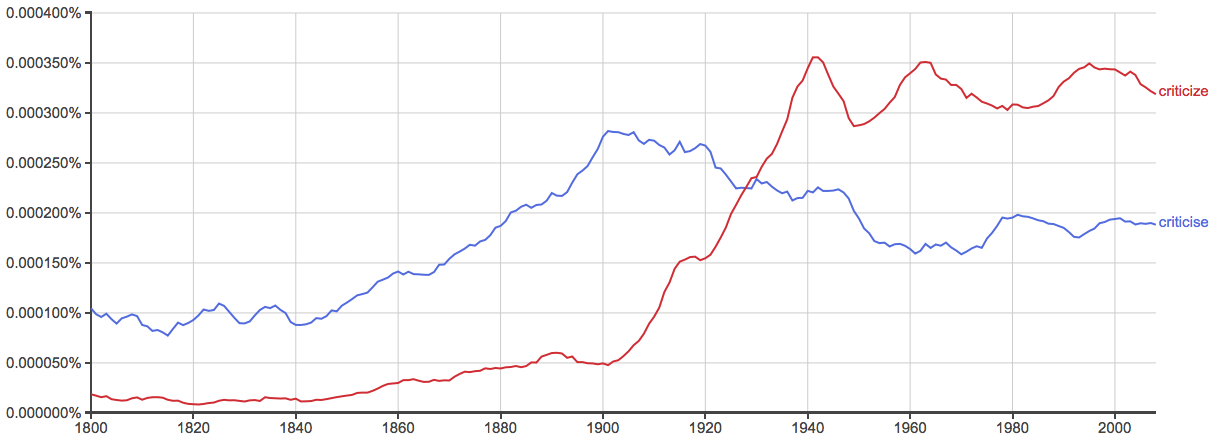Spelling differences between American and British English are common. See labor/labour, honor/honour, color/colour, etc.
The history of these spelling differences is fascinating to some people, but if you are looking for simple advice on whether to use criticise or criticize, it might be more information that you need.
Suffice it to say that both of these spellings are acceptable, but one is clearly preferred.
What is the Difference Between Criticise and Criticize?
In this post, I will compare criticise vs. criticize. I will use each of these words in at least one example sentence, so you can see how it appears in context.
Plus, I will show you a helpful memory tool that will allow you to choose either criticise or criticize correctly every time.
When to Use Criticize
 What does criticize mean? Criticize is a verb that means to judge something by its faults. It is related to the noun critic, or one who judges things.
What does criticize mean? Criticize is a verb that means to judge something by its faults. It is related to the noun critic, or one who judges things.
A film critic might criticize a movie by pointing out its poor writing, uneven pace, amateurish acting, or shoddy special effects.
A boss might criticize his or her employee’s performance, whether justly or unjustly.
Criticize is a regular verb, which means it follows the standard rules for conjugation of English verbs.
Here are a few of the verb’s most common tenses:
- I/we criticize: first person singular and plural present
- You criticize: second person singular and plural present
- He/she/it criticizes: third person singular present
- They criticize: third person plural present
- Criticizing: present participle
- Criticized: simple past
Here are a few ways to use criticize in a sentence:
- “I’m tired of you criticizing everything I do around here!” Julia complained to Eric.
- Gary asked Melanie to constructively criticize an essay he had written for his English class, so that he could use her advice to improve his writing.
- The U.S. Treasury sharply criticized China’s exchange-rate policies on Friday, though it stopped short of labeling the Asian trade giant a currency manipulator, as President Donald Trump said he would do while running for office. –The Washington Post
When to Use Criticise
 What doe criticise mean? Criticise is an alternative spelling of the same word. It means the same thing and can be used in all the same contexts.
What doe criticise mean? Criticise is an alternative spelling of the same word. It means the same thing and can be used in all the same contexts.
The only difference between these words is that criticize is the preferred spelling in American English, while both terms are common in British English.
At one point in the past, British English favored criticise, but that seems to be fading in recent years.
Still, some publications still use the spelling.
- Police chiefs have received a hefty dose of criticism, and ridicule, since it was revealed that one of their officers attempted to persuade an activist to spy on Cambridge University students. –The Guardian
These charts show the relative usage of criticize vs. criticise in each language community.
American English:

British English:

As you can see, even in British English, criticize is actually more common. These charts aren’t 100 percent exhaustive, however, since they only look at books published in English since 1800. Still, they clearly illustrate long-term usage trends.
Trick to Remember the Difference
If you want to play it safe, you should default to criticize in all contexts. It has been the more common variant in both American and British English for several decades. Americans have a proud history of changing the spelling of words to more closely reflect their pronunciations, including changing the s in criticize to a z.
Since apologize also ends in -ize, it should be easy to remember that criticize is better spelled this way, as well.
Summary
Is it criticize or criticise? Criticize and criticise are different spellings of a verb that means to point out the faults in something.
- Criticise is the older spelling.
- Criticize has surpassed it in both American and British English.
Contents
